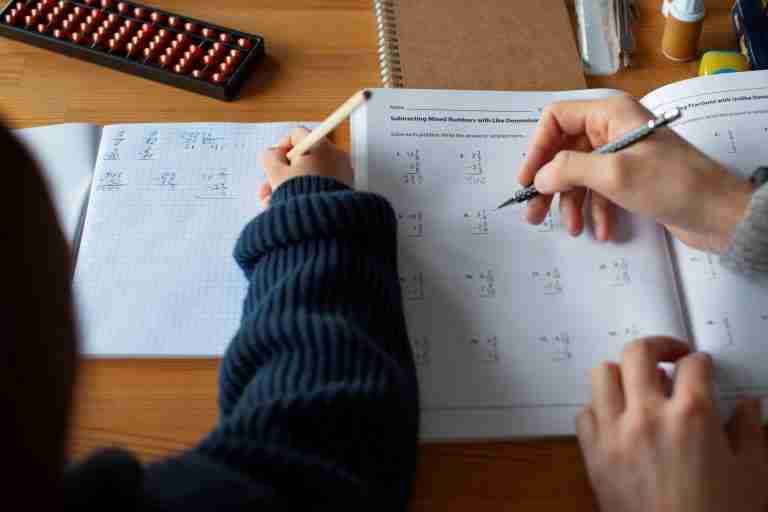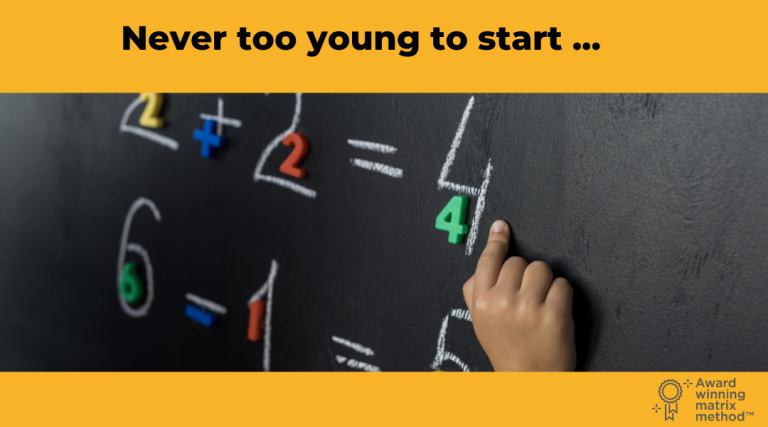Why Your Child Should Join a Study Group with Math Tuition
01 July 2024
BY: matrixmath
As the PSLE examination draws closer, your child is doing their best to prepare for the papers. Classes, homework and tuition are beneficial in strengthening fundamentals and preparing your child for the math problems presented. Outside of these sessions, however, there may be occasions when your child has difficulty studying independently. It may be a good idea to suggest studying with their friends. After all, there are various benefits that they can also derive from it outside of helping each other keep up with lessons. Peer Learning Even with the help of a good tutor, it can take a while for your child to understand the complexities of a math solution. In times like this, peer learning can be a significant boon. Your child’s friends may have a better understanding of a particular math problem. They can provide your child with a simple breakdown of a math problem and clarify any confusing sections. The study group also helps your child spot mistakes they might have made. A mistake made may not be obvious, so having someone look over your child’s work can help pinpoint these mistakes and correct them. At the same time, they may offer a simpler or more efficient way to reach the solution, making it easier for your child to see the bigger picture. Peer learning is beneficial whenever the study group can meet, whether during tuition classes or while studying together in the library. Even without a tutor, your child’s friends can still provide assistance to help your child succeed. Motivation The success of a study group comes from each student’s ability to work together and learn how to solve various math problems effectively. This spirit of collaboration can be a strong motivator for each person in the study group, especially when everyone gets to celebrate each other’s successes, no matter how small. As a parent, you can contribute to their motivation in small ways. You could, for example, serve chocolate for everyone when they collaboratively solve a head-scratching math question. Some incentives would not hurt to keep spirits high. Every bit of motivation can go a long way to help your child and their friends. With continuous practice and encouragement, a study group creates a positive feedback loop where everyone is motivated to do their best. The stronger their motivation, the higher their confidence in solving complex math problems. In so doing, their motivation from their success only increases. Relaxed Atmosphere Studying together also creates a fun, casual environment where everyone can freely communicate about homework and other subjects. Classrooms aim to foster learning with the guidance of a teacher; however, the formal atmosphere of schools can add some difficulty for some students to express themselves. A study group comprises peers with unique personalities and strengths. Each person can add a unique element to discussions, including injecting much-needed humour and fun into study sessions. As everyone in the study group gets more comfortable with math and their abilities to solve math problems, they also enjoy a boost in motivation and confidence that takes them further. The positive reinforcement of math as fun can make it something they can look forward to! Tuition centres make a point of instilling a similar atmosphere where collaboration and self-expression are essential points to a student’s growth. Study groups can also thrive here as it reinforces the importance of curiosity, collaboration, and critical thinking. Collaboration is Fun When the study group’s efforts show promising results, your child will find working with their friends to solve complex problems is enjoyable. Collaboration is fun, especially when it makes studying maths less stressful as everyone supports each other’s growth. It is also preferable to studying alone, which can make the study session seem monotonous and tedious. It can be very joyful to hear your child express their excitement over their next study group session, especially if the group dynamic has been very positive for everyone involved. The others would feel the same! Real World Application More importantly, a study group prepares these young, bright students for the real world. It may seem far off at their age, but developing various skills from a young age will carry over into adulthood. Your child and their friends can take what they learned from their study group sessions – collaboration, communication, and problem-solving skills from their math studies – and apply them in the working world. Supplement Study Groups with Matrix Maths Study groups are a great way for students to come together and collaborate to learn new things, improve their skills, and have a good time in the process. It is nonetheless essential that the study group focus on studying to minimise distractions. With everyone committed to it, a study group will yield plenty of exciting results while allowing everyone to bond closely with each other. Matrix Math encourages study groups, given the many benefits they provide students. In fact, study groups during tuition sessions at Matrix Math offer plenty of opportunities for students to showcase their collaborative spirit in understanding new topics and working on solving complex math problems. Tutors can also draw on a study group’s dynamic to encourage further student participation, bolstered by the support of their peers. Are you and other parents hosting study group sessions at your homes? With the PSLE being only a month away, study groups must study smart so that everyone is up to their best ahead of the exams. We have compiled a helpful series of videos in ourPSLE Final Revision Course that will further reinforce learned concepts!









